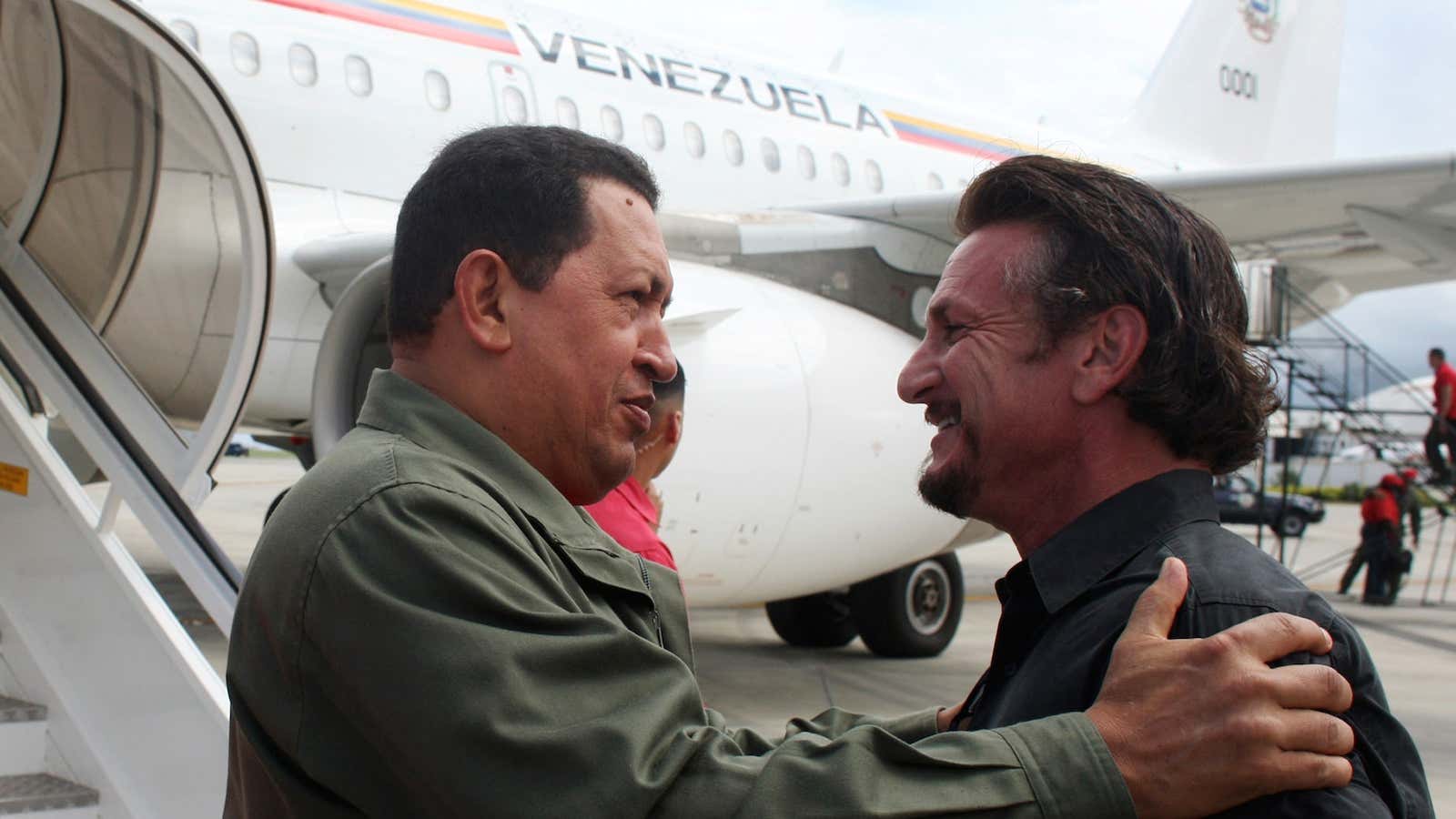“Sean Penn wanted me to go to Haiti with him,” Tracy Jordan declares on an episode of 30 Rock. “I’m not strong enough for the pain and human misery of a three-hour plane ride with Sean Penn.”
No one is. And if there was any doubt in our minds about the actor-turned-activist’s self-aggrandizing ignorance, it was banished by his Rolling Stone profile of the recently recaptured Mexican drug lord Joaquín Archivaldo Guzmán Loera (aka “El Chapo”).
Penn, who, in his own words, speaks little more Spanish than “hola” and “adiós,” shamelessly glamorizes one of the most ruthless criminals in modern Mexican history.
“I took some comfort in a unique aspect of El Chapo’s reputation among the heads of drug cartels in Mexico: that, unlike many of his counterparts who engage in gratuitous kidnapping and murder, El Chapo is a businessman first, and only resorts to violence when he deems it advantageous to himself or his business interests … As an American citizen, I’m drawn to explore what may be inconsistent with the portrayals our government and media brand upon their declared enemies.”
All right then. If all of this is just “business” first, I suppose we can just ignore the Mexican journalists who have been killed covering the Mexican drug trade.
Indeed, Penn’s rumination on the “relative morality” of the Mexican drug trade doesn’t demonstrate much concern for the thousands of innocent victims it has swallowed up on both sides of the US-Mexico border. Instead, Penn indicts the US War on Drugs, bizarrely insisting that the policy is out of step with culture “on the ground” in Mexico. “Perhaps in the tunnel vision of our puritanical and prosecutorial culture that has designed the War on Drugs, we have similarly lost sight of practice, and given over our souls to theory,” he writes. There are plenty of solid, valid criticisms to be levied against US drug policy. But Penn’s insinuation that narco-cultura and Mexican culture are one and the same is disgraceful.
The fawning profile seems to excuse El Chapo and his contemporaries from their role in perpetuating drug-related violence and death across the Americas. It assigns guilt primarily to American drug users, calling for more understanding as to “the economics and illness of addiction” while simultaneously blaming them for financing the entirety of our hemispheric drug trade. El Chapo, according to Penn, is no murderous capitalist exploiting a lush market for narcotics. He’s a victim of Washington-born oppression, making money the only way he knows how. (If you’re hoping Penn sidestepped any clichéd comparisons to Robin Hood, you’re going to be disappointed.)
Yet the true purpose of Penn’s profile seems to be less about El Chapo and more about demonstrating the actor’s ostensible worldliness and against-the-grain politics. He has a long history of self-involved activism, from showboating through the wreckage of post-Katrina New Orleans to striking up a friendship with the recently deceased Venezuelan president Hugo Chávez. (Though for years Penn denied a friendship with Chávez, he eventually came clean—even telling Bill Maher that journalists who criticized the South American dictator should be rightly imprisoned.)
Penn is a prime example of misguided liberal geopolitics. He appears to subscribe to the notion that the world is cleanly divided between staunch neoconservatives and neo-Bolsheviks. It’s not enough to decry the tactics of the CIA or the US military or president Obama’s drone program; one must unquestioningly embrace America’s so-called enemies as well. It’s the same kind of lazy, un-nuanced thinking you can find on any given US college campus—usually from some guy who likes to take his guitar out at parties and talk about Sandinistas like the Cold War is still in full swing.
Sean Penn is, in other words, a Che Guevara T-shirt personified. “When you’re not really challenging the person and have agreed to submit the story for approval, it sounds more like a Hollywood entertainment,” Alfredo Corchado, Mexico bureau chief for The Dallas Morning News, told The Washington Post. “Is he serving the public or is he aggrandizing himself?”
It’s certainly common for celebrities to self-publicize. But it would be preferable for Penn find a way into the spotlight that doesn’t involve spreading an arrogant misunderstanding of Latin American politics while overlooking the blood spilled by Mexico’s drug trade. Perhaps that’s too much to ask of a man who can’t even take responsibility for his own wrongdoings–let alone those of another.
